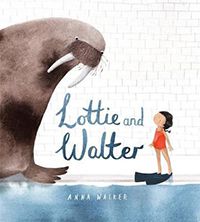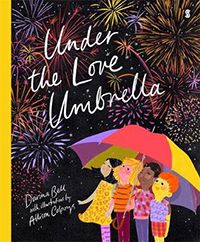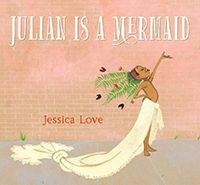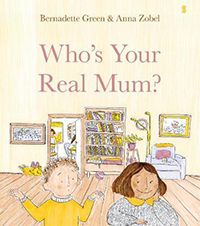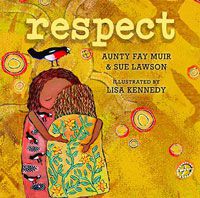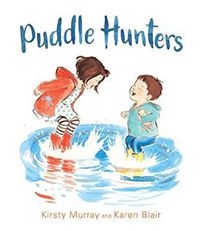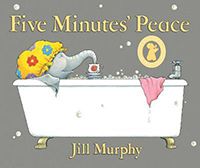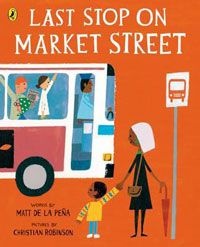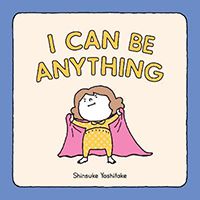Our digital content manager Bronte Coates shares some of the best parenting advice she’s absorbed from reading picture books over the years.
Give your child space to figure out big emotions.
I adore the way Anna Walker celebrates the resilience and creativity of children in her picture books. In Lottie and Walter, Lottie manages to overcome her fear of going in the water thanks to a singing walrus. Throughout the book, Lottie’s mother hovers in the background but refrains from direct intervention, meaning her daughter is able to work through her feelings to solve the problem on her own. This kind of gently reassuring, hands-off parenting appears in lots of picture books; Katrina Lehman’s Wren (featuring the gloriously exuberant illustrations of Sophie Beer) and Chris Haughton’s Don’t Worry, Little Crab are two of my other favourite examples.
Reassure your child that you love them as much as they need.
From talented duo Davina Bell and Allison Colpoys, Under the Love Umbrella is a favourite at Readings with customers and staff alike. The ‘love umbrella’ of the title is a metaphor for love that’s invisible but ever-present, no matter where you are, and Colpoys’s distinctive, fizzing illustrations depict parents and caregivers supporting children through a range of fears and worries, big and small. Reading this book is always a good reminder for me that there will be an endless number of times in the future that my child may need to be reassured of my presence and love.
Accept your child for who they are.
Julian Is a Mermaid is a radiant tribute to self-discovery and individuality. Inspired by the spectacular outfits of some women he spotted on the subway, Julian gets dressed up in his own fabulous mermaid costume with the use of a curtain and the fronds of a potted fern. The matter-of-fact and wholly supportive response his Abuela has when she sees him in costume is a beautiful moment, and I love that she encourages him to further explore his magical yearning to be a mermaid. It’s also an attitude I hope I’ll be able to emulate as my child grows older and away from me, into their very own, very different person.
You’re allowed to be yourself around your child too.
Sometimes it can feel like you’re not being the ‘right’ kind of mum, or that you need to present a persona to your child that isn’t really you. A funny and joyful picture book that celebrates nontraditional families – Bernadette Green’s Who’s Your Real Mum? demonstrates how the things that make you special to your child will be just as unique to them, as the other way round. When a girl with two mums is asked who is her ‘real’ mum, she has one million answers: ‘the one who holds me when I’m scared’; ‘the one who calls her pelican friends when I want to go flying’. Anna Zobel’s endearing illustrations bring the girl’s imagination to life as the true answer becomes increasingly more obvious: they are both her real mums.
Set strong foundations.
Being a parent can sometimes feel a bit like being a teacher, and talking with my child about respect and other big ideas (such as empathy and resilience) has always seemed like a good habit for me to try and emulate. From dream team Aunty Fay Muir and Sue Lawson, Respect is the first book in the new Our Place series. In its pages, we follow a young girl as she learns the importance of being respectful – to nature, to Country, to family, to yourself, and more. The simple and instructive words of the girl’s grandmother are beautifully realised by artist Lisa Kennedy.
Look for ways to turn small tasks into adventures.
Parenthood can also feel like drudgery – probably because sometimes it is – and it can help to try shift your perspective about mundane tasks. Puddle Hunters is a perfect example of how to do this. Set during a rainy day, siblings Ruby and Banjo head out on an urban adventure. Together with Mum, they search for the ‘perfect puddle’. This simple story is made fresh by Kirsty Murray’s lyrical language and Karen Blair’s soft watercolours imbue the book with a dreamy quality that beautifully conveys that hazy, otherworldly moment just after the rain stops.
It’s okay for you to need a rest sometimes too.
On the flipside of what I’ve written above, sometimes you and your imagination need a break! First published more than 30 years ago, Jill Murphy’s Five Minutes’ Peace feels as fresh and relatable now as it did then. In need of a few minutes peace from her rowdy children, Mrs Large attempts to take refuge in the bathroom – to hilariously little success. I was also lucky enough recently to glimpse an early copy of the forthcoming picture book from Doodle Cat creator Kat Patrick: Howl. Featuring art from Evie Barrow, this book touches on the way parents can lose their tempers too, while also sharing creative ways for working through bad moods together.
Treat children’s questions and concerns seriously.
Children can think (or behave) in ways that are irrational or illogical, but knowing this doesn’t change the fact that their worries and fears feel very real and imminent to them. The highly acclaimed Last Stop on Market Street from Matt de la Peña and Christian Robinson is a fantastic example of a grandmother responding honestly and sympathetically to a boy’s questions, many of them touching on big, complex issues such as class. This book is also a heartwarming argument for kindness to others.
Finally – things will not always go to plan.
Someone once said: The best-laid plans of mice and men often go awry… But that someone was not me who likes to be as organised and prepared as possible – an impossible ideal with a small child. Shinsuke Yoshitake is one of my own favourite picture book creators and his latest offering, I Can Be Anything, is a brilliant non-bedtime bedtime story. It’s time for bed, but Natsumi has a better idea: she’ll pretend to be something and her mum will guess what she is! While the tiredness and exasperation shows on Natsumi’s mother’s face, she perseveres, and parents and children alike will love the book’s off-beat ending.


